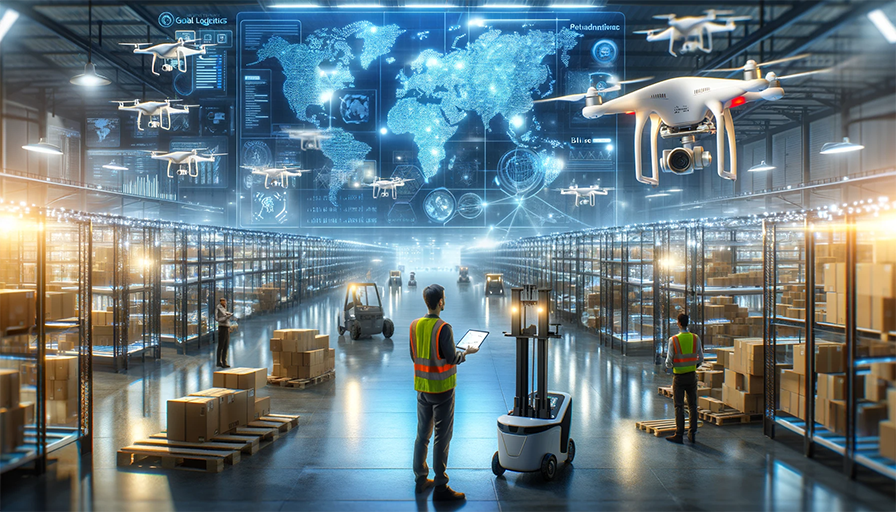Supply Chain & Logistics

WHERE CAN AI SUPPORT SUPPLY CHAIN & LOGISTICS?
Looking from afar, Supply Chain & Logistics is a (supposedly) seamless flow of goods from the producer to the consumer. But for those actually involved in the industry, there are multiple stages involved.
With experience of working beside some of the major players, Brightbeam’s founders appreciate that AI cannot solve every single challenge the sector faces. So instead, we look at AI on a case-by-case basis to show you how it can address specific – often mission-critical – operational issues.
Demand Forecasting
Operational Issue
Inaccurate predictions are leading to overstocks or stock-outs.
What we can do
Establish customised predictive analytics using cleansed data and AI tooling.
The impact we can make
Precision forecasting resulting in optimized inventory levels and reduced holding costs.
Difficulties in adapting to wider market dynamics are inviting nimble competitors to gain market share.
What we can do
Provide the real-time AI models that ingest multiple sources of data and present scenario-based options for business decision-making.
The impact we can make
Adaptive business modelling resulting in a more agile supply chain response to market shifts.
Inventory Management
Operational Issue
Inefficient warehouse space utilisation is creating unnecessary costs that undermine profitability.
What we can do
Adapt generative AI design tools for optimal, flexible warehouse schematics.
The impact we can make
Tailored warehouse designs resulting in maximised storage capacity and improved throughput of goods.
Challenges in stock rotation and perishable good management are producing excess waste that affects competitiveness.
What we can do
Develop the AI algorithms for FIFO (first in, first out) optimizations and goods tracking.
The impact we can make
Clear management parameters resulting in less wastage for the business and higher perishable product quality for consumers.
Transportation
Operational Issue
Delays and inefficiencies in route planning meaning frustration for drivers and customers alike.
What we can do
Integrate data sources like weather and package types with AI-powered dynamic route optimisation.
The impact we can make
Custom delivery optimisation tools resulting in lower fuel costs and timely deliveries to customers.
Issues with real-time tracking of shipments is preventing the business from delivering on its brand promises.
What we can do
Create real-time tracking that incorporates IoT sensors, RFID and generative AI.
The impact we can make
Second-by-second visibility into shipment progress and delays resulting in certainty and improved customer trust.
Vendor Management
Operational Issue
Lack of vendor performance tracking is affecting quality control and contract negotiations.
What we can do
Bring together large and disparate historical datasets and layering on the AI-based systems to analyse real-time movements.
The impact we can make
Proof of quality standards resulting in better strategic vendor partnerships and easier contract renewals.
Problems with identifying the best partners on the roster increases the risks associated with routing more business through underperforming suppliers.
What we can do
Design the data requirements and generative AI algorithms that will create a robust supplier scoring system.
The impact we can make
Multi-criteria quality assurance resulting in reduced supply chain risks and better relationships with partners.

